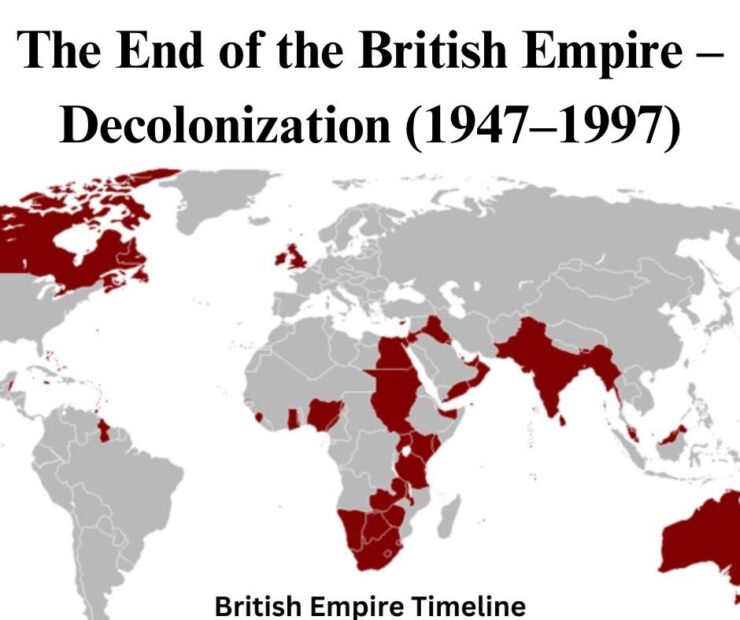
The End of the British Empire – Decolonization (1947–1997)
Over the course of five decades, the British Empire underwent a significant transformation, transitioning from a global imperial power to a collection of independent nations. This era of decolonization reshaped international relations and marked the end of colonial rule for many territories.![]() Key Milestones:
Key Milestones:
•1947: India and Pakistan gained independence, signaling the beginning of the end for British colonial rule in Asia.
•1957: Ghana became the first sub-Saharan African country to achieve independence from Britain, inspiring other African nations. 
•1960s: A wave of decolonization swept across Africa and the Caribbean, with numerous countries attaining sovereignty.
•1980: Zimbabwe emerged as an independent nation after years of colonial rule and conflict.
•1997: Hong Kong was handed over to China, marking the final significant transfer of a British colony. ![]() Factors Driving Decolonization:
Factors Driving Decolonization:
•Post-WWII Realities: The war weakened Britain economically and militarily, making it challenging to maintain its empire.
•Rise of Nationalism: Colonized peoples increasingly demanded self-determination and independence.
•International Pressure: Global institutions and other nations advocated for decolonization and the end of imperialism.![]() Legacy:
Legacy:
The decolonization process led to the emergence of new nations and redefined global power structures. Many former colonies joined the Commonwealth of Nations, fostering cooperation and shared values. 
The dissolution of the British Empire was a complex and transformative period that reshaped the modern world.
